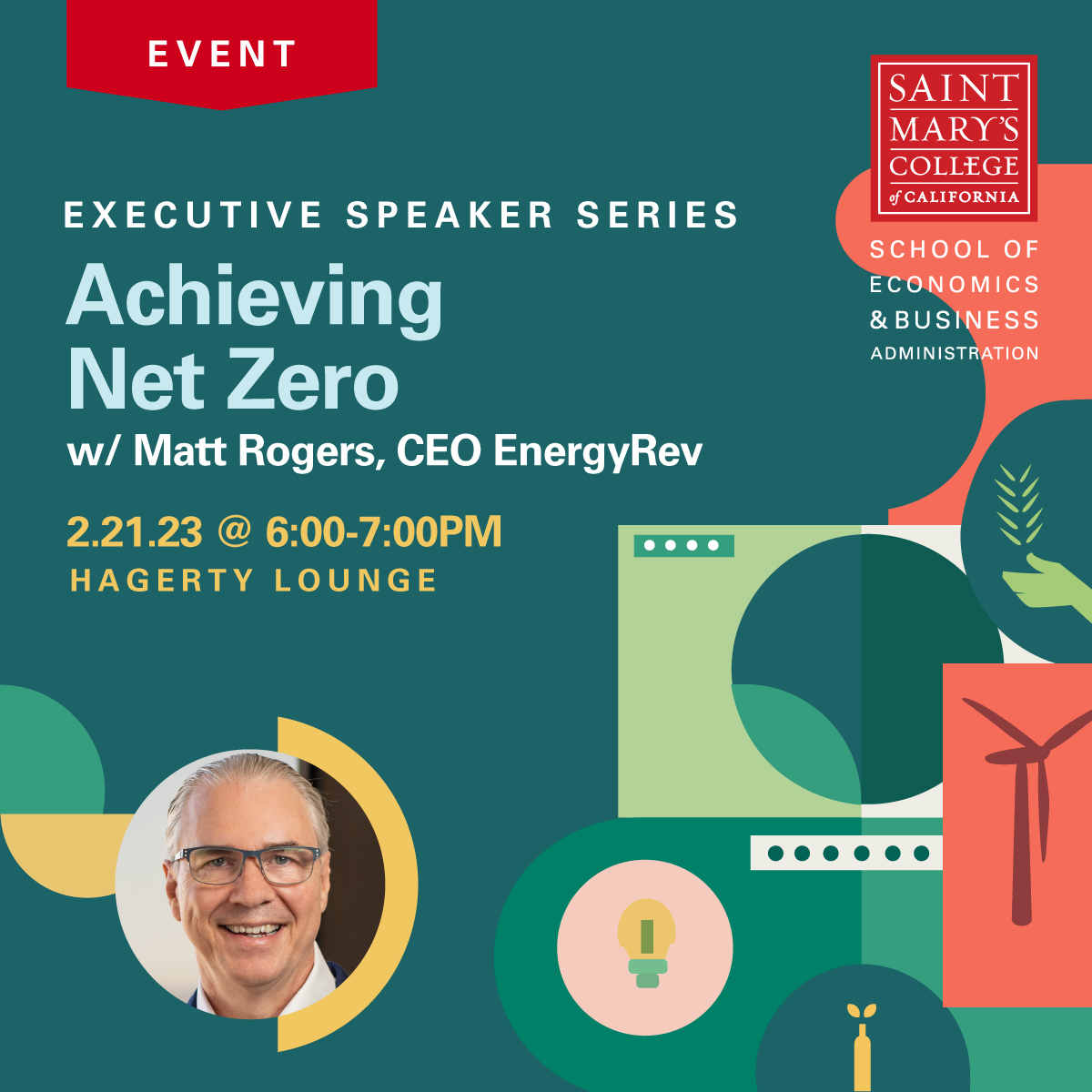
Executive Speaker Series: Achieving Net Zero
Business Responsibilities & Opportunities As We Course Correct Our Climate
Date & Time
Location (On-campus)
Moraga, CA 94575

About
In 2015, 197 countries endorsed the Paris agreement, committing to “holding the increase in the global average temperature to well below 2°C, preferably below 1.5°C above pre-industrial levels”. The global climate is already ~1.2°C above pre-industrial levels according to the UN Intergovernmental Panel on Climate Change (IPCC), so a 1.5°C target requires reducing global carbon emissions to net zero no later than 2050; indeed, emissions need to fall ~50% by 2030 to have a shot at meeting 1.5°C. And hundreds of companies and countries have made public commitments to deliver. However, for all the good rhetoric and public commitments, current commitments fall 70% short of what would be needed by 2030 to deliver on a 1.5°C commitment—we are likely on a path to 2.5 degrees and perhaps higher, well outside the bounds of the last 12,000 years. Regrettably, neither the countries nor the companies committing to net zero have “clear and credible policy actions and strategies today” necessary to deliver. The good news is that we know how to drive this kind of broad based decarbonization economically. On February 21st, we will have a good discussion about the realistic pathways to net zero.
ABOUT THE SPEAKER
Matt Rogers is a global energy and sustainability leader, focusing on the role technology and innovation play in restructuring markets. For the last 20+ years, Matt served oil, gas, power, renewables, and energy technology clients around the world for McKinsey. From 2009 to 2010, Matt served as the Senior Advisor to the US Secretary of Energy, leading the Recovery Act Implementation. He had operational responsibility for the Department of Energy’s $35B in Recovery Act appropriations: reviewing more than 30,000 applications and funding more than 5,000 projects to accelerate US energy clean energy innovation. . His book Resource Revolution: Capturing the Biggest Business Opportunity in 100 years was published in April 2014, arguing that the combination of information technology with industrial technology is changing the way we produce and use natural resources.
He graduated magna cum laude from Princeton University. He earned an M.B.A. from Yale University’s School of Management. He is married with three adult children.